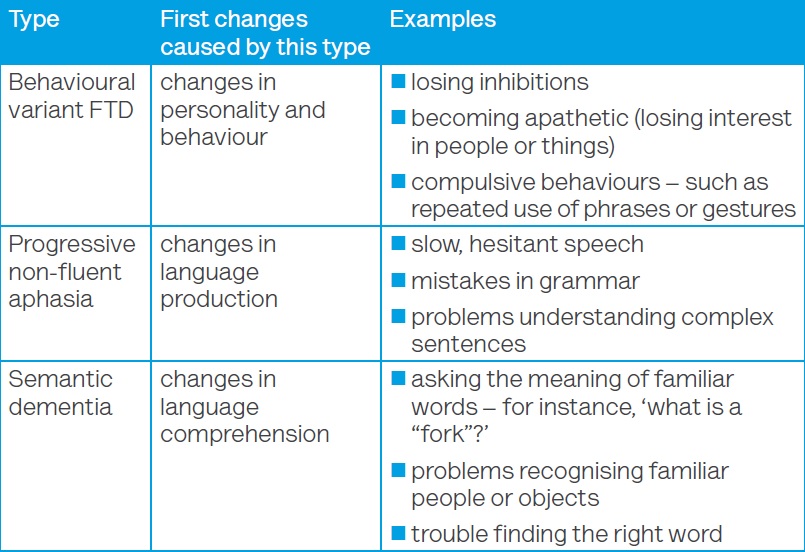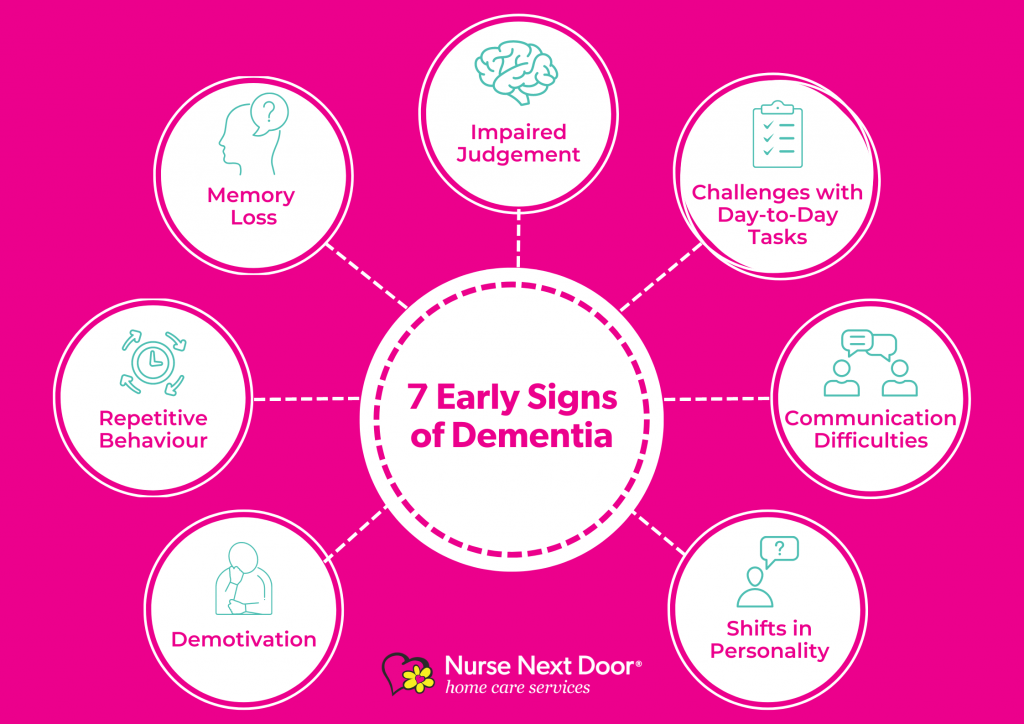Recognizing the Impact of Dementia on Day-to-day Live and Caregiving
Dementia impacts life in extensive means, influencing not simply those diagnosed but additionally their caretakers. As cognitive decrease advances, you might see adjustments in communication and regular that obstacle both celebrations. Comprehending these changes is necessary for keeping dignity and interaction. Just how do you adapt your caregiving approaches to support someone traversing this facility journey? The answers may shock you as we discover the subtleties of this experience.
The Stages of Mental Deterioration and Their Impacts on Day-to-day Live
As you navigate the trip of dementia, comprehending its stages can considerably affect how you handle every day life. Mental deterioration generally advances with three primary phases: early, center, and late. In the onset, you might notice occasional memory lapses or problem locating the ideal words. This can lead to stress, but identifying these indications early assists you adapt your regular and seek assistance.
During the center phase, you'll experience more visible cognitive decline. Daily jobs might end up being tough, and preserving your self-reliance might need adjustments. Making use of pointers and simplifying your environment can aid.
In the late stage, individuals frequently need significant assistance with day-to-day activities. Planning for care becomes important, concentrating on convenience and quality of life. By understanding these phases, you're better equipped to react proactively, guaranteeing you or your loved one can navigate the difficulties with dignity and grace.

Changes in Interaction and Social Interaction
Exactly how do adjustments in interaction impact your day-to-day communications as dementia progresses? As dementia breakthroughs, you could discover that simple discussions end up being difficult.
You may discover it easier to link via these methods as opposed to depending entirely on talked language. Listening abilities can additionally alter; you might discover it more difficult to adhere to conversations or keep in mind what was just stated (Vascular Dementia). This can cause misconceptions or feelings of seclusion
Motivating persistence and creating a supportive atmosphere can help. Engaging in tasks that promote link, like music or art, can improve social interactions. Remember, preserving connections is still possible; it's simply around adjusting to new ways of communicating.
Influence On Daily Routines and Activities
While steering everyday regimens, you'll likely discover that tasks you once finished effortlessly come to be much more difficult as mental deterioration progresses. You could discover on your own forgetting steps in familiar regimens or battling to remember where you positioned products.
Preparation your day can really feel overwhelming, making it more difficult to stay with a routine. You might require reminders for appointments or to take drugs. Adjusting your setting can assist; as an example, identifying items or using checklists can streamline jobs. Participating in repeated, structured activities can likewise give convenience and a feeling of success. Remember, it's fine to request for aid. Bordering yourself with supportive good friends or family members can make managing these adjustments a little bit less complicated.
Behavioral and psychological Challenges
Guiding through day-to-day regimens can bring about not simply sensible difficulties, but additionally emotional and behavior ones. You might notice adjustments in state of mind, such as enhanced stress and anxiety or aggravation, which can stem from complication or problem in completing jobs. As you navigate these moments, it is important to identify that your enjoyed one may share their feelings via behaviors like frustration or withdrawal.
These emotional feedbacks can be unpredictable and may emerge without warning, leaving you both feeling bewildered. You might discover that familiar environments or routines can help in reducing stress and anxiety, yet maintaining persistence comes to be substantial. It is essential to confirm their feelings, also if you don't fully comprehend them.
The Function of Caregivers in Sustaining People With Dementia
As a caregiver, you play an essential role in giving psychological support for individuals with dementia. Establishing everyday care regimens can produce a sense of stability and comfort, assisting to alleviate their anxiousness. By recognizing their demands and using efficient approaches, you can significantly enhance their high quality of life.
Psychological Support Techniques
When taking care of somebody with mental deterioration, understanding the emotional landscape is vital for supplying efficient assistance. You'll typically discover that persistence and compassion go a lengthy method. Verify their feelings; if they express confusion or disappointment, recognize it without rejecting their feelings. Basic motions, like holding their hand or preserving eye contact, can create a complacency. Try to engage in tasks that they appreciate, as this can trigger joy and connection. Keep in mind to communicate plainly and slowly, using a calm tone. Encourage expression via music or art, which can act as an effective outlet. Eventually, don't neglect to look after your own psychological requirements; looking for support on your own can boost your capacity to take care of them.
Daily Care Routines
Developing daily care regimens is important for supplying security and comfort to people with published here dementia, as these regimens can assist reduce complication and anxiety. You can start by laying out a constant schedule for dishes, activities, and rest. This predictability aids your loved one feel a lot more secure and engaged.
Include acquainted tasks, like folding washing or watering plants, which can evoke positive memories and cultivate a feeling of accomplishment. Use aesthetic signs, such as checklists or calendars, to assist them via the day.
Be flexible, though; adapt routines as required based upon their state of mind or energy levels. Fall Risk. Keep in mind, your perseverance and understanding are vital in maneuvering their changing demands, ensuring they feel supported and valued throughout their life
Producing a Safe and Comfy Living Setting
Developing a comfy and secure living setting is essential for people with mental deterioration. You'll intend to make home safety and security adjustments that minimize risks and assure familiarity to provide a sense of convenience. By concentrating on these elements, you can aid develop a room that sustains both safety and security and health.
Home Safety And Security Modifications
As you navigate the challenges of dementia, making home safety modifications can substantially boost convenience and safety. Begin by eliminating tripping dangers like rugs and clutter, assuring sidewalks are clear. Set up grab bars in shower rooms and non-slip mats in the shower to stop drops. Consider using brighter lights and evening lights to enhance visibility, specifically during nighttime. Tag crucial areas, such as the bathroom and cooking area, with clear indications to help with alignment. Protect any kind of sharp things or harmful substances unreachable. Additionally, analyze your home's locks and alarm systems to validate they're easy to use and provide comfort. These adjustments not just promote safety and security however also motivate freedom, enabling your loved one to really feel more secure in their environment.
Convenience and Familiarity
After ensuring a secure setting with required adjustments, cultivating convenience and familiarity is essential for individuals with dementia. Start by customizing their space. Use familiar shades, decors, and photographs that stimulate pleased memories. A favorite blanket or chair can give a sense of security. Preserve a constant regular to help them really feel based and lower anxiety. Easy, acquainted meals can likewise produce a calming ambience. Maintain paths clear and clutter-free to avoid confusion. Integrate soft illumination, as brilliant lights can be disorienting. Think about adding calming fragrances, like lavender, to advertise leisure. Taking part in familiar activities, such as paying attention to music or gardening, can enhance their sense of belonging, making their living environment a real refuge.
Techniques for Efficient Caregiving and Support
While steering the difficulties of dementia treatment can feel frustrating, applying reliable methods navigate to this site can considerably improve both the caretaker's and the client's daily experience. Beginning by establishing a regimen; predictability helps in reducing anxiety for both you and your enjoyed one. Use clear, simple interaction-- straight concerns and short sentences can prevent complication.

Do not fail to remember to take care of yourself; timetable breaks and link with support teams. Sharing experiences with others in similar situations can give beneficial understandings and emotional alleviation.
Last but not least, stay client and versatile. Dementia can bring unpredictable adjustments, so adjusting your method is vital. By employing these strategies, you can cultivate a more positive setting that benefits both you and your loved one.
Regularly Asked Concerns

What Are the Different Kinds of Mental Deterioration?
You'll discover a number of sorts of dementia, including Alzheimer's, vascular mental deterioration, Lewy body mental deterioration, and frontotemporal mental deterioration. Each kind influences memory and cognitive feature in different ways, so recognizing the differences is essential for proper medical diagnosis and treatment.
Exactly How Can I Assist A Person With Early-Stage Mental Deterioration?
You can aid a person with early-stage dementia by holding your horses, providing support, and urging them to take part in tasks they delight in. Maintaining routines constant and maintaining open interaction can likewise make a substantial distinction in their every day life.
Are There Financial Resources Available for Mental Deterioration Care?
Yes, there are financial sources offered for dementia care. You can explore federal government support programs, nonprofit companies, and insurance coverage options. It's additionally a good idea to consult neighborhood companies for specific sources customized to your situation.
What Lawful Considerations Should Caregivers Know?
As a caretaker, you ought to take into consideration power of lawyer, health care proxies, and guardianship legislations. It's necessary to understand the lawful rights and duties you hold, guaranteeing your liked one receives appropriate care and security.
How Can I Manage Caretaker Anxiety?
You can manage caregiver stress and anxiety by prioritizing self-care, seeking assistance from groups or friends, establishing practical assumptions, taking breaks, and practicing leisure methods. Bear in mind, your health matters equally as high as the person you're looking after.
Understanding the Influence of Dementia on Daily Life and Caregiving.
As you browse the trip of dementia, recognizing its stages can considerably influence exactly how you take care of daily life.While steering daily routines, you'll likely observe that jobs you when finished effortlessly come to be more difficult as mental deterioration progresses.Developing daily treatment routines is necessary for providing security and convenience to individuals with dementia, as these regimens can help minimize complication and anxiety.While steering the difficulties of dementia treatment can feel frustrating, redirected here carrying out effective techniques can substantially enhance both the caregiver's and the client's everyday experience.